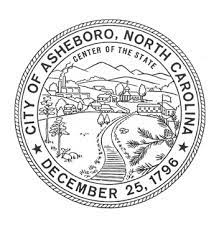Welcome!

Asheboro’s water rates could rise to meet demands
ASHEBORO — With aging water and wastewater systems, Asheboro needs to raise its customer usage rates.
That was the message to the Asheboro City Council at a special meeting on May 2. Finance Officer Debbie Reaves asked that the board change its directive of no fee increase for the 2024-25 city water/sewer budget.
The budget she presented is balanced with revenues and expenses at $22,843,717. However, Reaves said, “Our aging system needs to be maintained. There have been no upgrades” for many years.
Her presentation showed that the water treatment plant, built in 1939, was upgraded in 1954-55, in 1970-72 and lastly in 1986-88.
The wastewater treatment plant, built in 1962, has had upgrades in 1975, 1988 and 1996.
The last water rate increase was in July 2022, after being warned a year earlier by the Local Government Commission (LGC) that the city should not be subsidizing water and sewer costs with reserves from the general fund.
Later, Reaves said, “We need a fee increase because there are big holes to fill. Little increases over time is easier on the customer. And it shows the LGC that we’re working on it and are true to our word. They’ve told us that drawing from the fund balance is not sustainable.”
Reaves also explained that NC general statutes mandate that enterprise funds, such as with water/sewer systems, must be self-sufficient. The LGC, the oversight commission, says, “Fees should reflect the actual cost.”
On an average water/sewer usage of 500 cubic feet per month, a 1 percent increase in the rate would generate $225,094 in annual revenues, according to a chart Reaves presented. A 2 percent increase would result in $450,189 in added revenues and a 3 percent rate increase would bring in an additional $675,283 per year.
Reaves noted that a 1 percent increase in the water/sewer rate would cost the customer approximately $8 per year, or 66 cents per month. A 2 percent increase would cost the average customer $1.32 per month and a 3 percent increase would add $1.98 to the average monthly water bill.
Mayor pro-tem Walker Moffitt said he could see the city doubling the volume of water it sells during the expected growth from the Toyota and Wolfspeed manufacturing plants being built. He called the growth “rays of sunshine.”
But Reaves replied, “We have to get through the next five years. I don’t know what the timeline is” for added customers.
City Manager John Ogburn opened the meeting by saying that Asheboro has been in the water business since 1919 or 1920. The water treatment plant was first built in 1938 and the wastewater treatment plant opened in 1969.
But, he said, “Everything is different now,” with more guidelines for clean water. Small towns cannot afford to keep up.
Michael Rhoney, Water Resources director, addressed regionalization that’s being mandated by the NC General Assembly. He said Asheboro’s region would basically follow US 421 from Greensboro to Dunn. That would address planned economic growth led by Toyota, Wolfspeed and others.
Regionalization, Rhoney said, would provide economies of scale so that local governments could share the costs. He said that for Asheboro to upgrade its water and wastewater systems, it would cost upwards of $130 million.
Meanwhile, according to Rhoney, plans are moving forward to lay water lines from Asheboro to Wolfspeed, just over the Chatham County line.
Another water line is being planned from the Piedmont Triad Regional Water Authority (PTRWA) to run Randolph County water to meet with Asheboro lines. The county will provide 1.2 million gallons per day while the Town of Ramseur will add 600,000 gallons for the total of 2.5 million gallons per day, with Asheboro making up the rest.
Another water line is planned to run from Ramseur to Liberty for its future growth needs.
Ogburn said that he and Rhoney have met with officials of the PTRWA about possibly joining the group. That could be part of a regional water commission in the future.
“Regionalization is a real deal,” said Ogburn. “It’s coming.”
